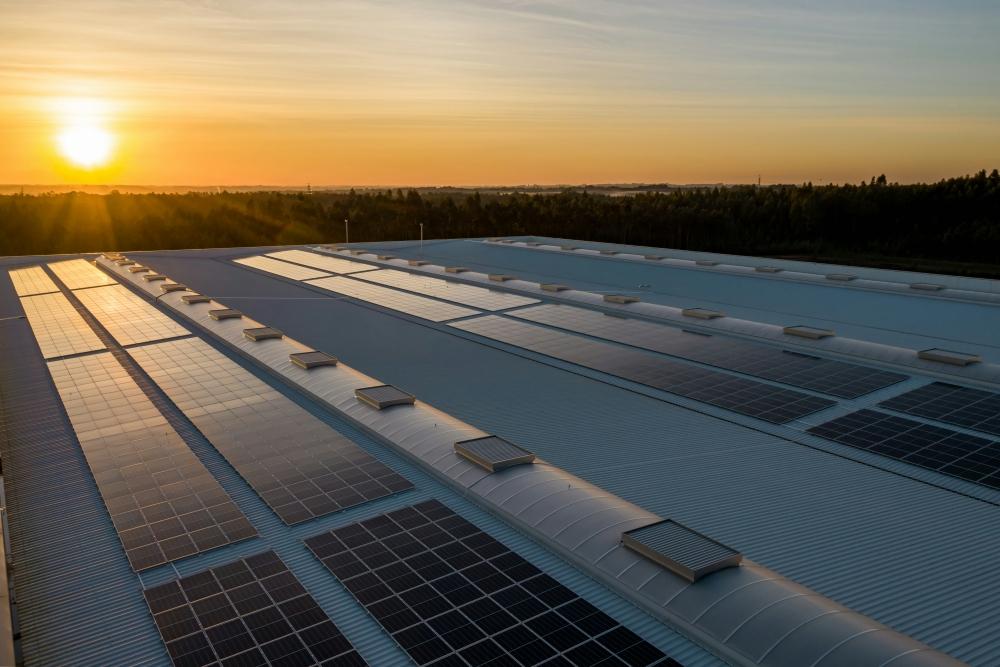
As the world increasingly leans away from fossil fuels, solar energy stands out as a cost-effective and environmentally friendly alternative. With the global emphasis on reducing greenhouse gas emissions, solar panels are increasingly appealing for their environmental benefits and financial returns.
Solar panels are not just energy assets, they are also financial assets. In this blog post, we explore how we can leverage solar energy to generate income.
The Basics of Solar Energy Production
Solar panels convert sunlight into electricity through photovoltaic cells. This simple yet profound process, known as the photovoltaic effect, is a cornerstone of solar energy technology.
By installing energy-producing infrastructure into homes and businesses, we reduce dependence on fossil-fuelled energy sources and enhance energy security and independence. Understanding how these solar energy systems work is the first step in appreciating the economic and environmental impacts of solar investments.
Economic Benefits of Solar Panels
An immediate benefit of installing solar panels is the significant reduction in electricity bills. By generating power on-site, users can avoid high utility costs, especially during peak hours.
Solar panel owners can also generate passive income through green energy trading platforms like REHash, where Renewable Energy Certificates (RECs) are traded. These certificates validate that the power was produced via renewable means and can be sold, providing an ongoing stream of income derived from solar energy.
This dual benefit increases the return on investment of solar panels, positioning them as economical and productive assets.
Calculating the Payback Period for Solar Panels
Determining when solar panels will start to pay for themselves — the solar panel payback period — is crucial for any investor. This period is influenced by several factors, including the initial solar panel cost, operational efficiencies, and the amount of electricity generated.
Investors need to balance these costs against the savings accrued from reduced utility bills and the potential earnings from selling RECs. This financial analysis helps clarify the ROI of solar panelsI and assists in making an informed investment decision, ensuring expectations align with financial realities.
Incentives and Financial Support for Solar Energy
While the cost of solar technology has significantly declined over the years, making solar energy more affordable than traditional electricity sources, there are still considerable investments involved in deploying solar panels.
In Singapore, direct government grants/incentives specifically for solar energy are unavailable, as solar energy costs are generally lower than the retail electricity price and regulated tariff. This reflects the government’s stance that the economics of solar energy have become self-sustaining.
For residential solar projects, several solar financing options are available to alleviate the upfront costs of solar installations. Notably, partnerships between banks and solar PV vendors offer tailored solar payment plans, allowing a broader range of consumers to participate in the green energy revolution.
Case Studies: Success Stories of Solar Energy Income
Two compelling examples of solar energy’s financial viability and environmental benefits are IKEA’s retail stores and the National University of Singapore’s (NUS) School of Design & Environment.
IKEA: Global Retail Chain
IKEA has installed over 700,000 solar panels on the rooftop of its stores worldwide, significantly reducing its energy costs and showcasing its commitment to sustainability. Many of IKEA’s installations have reached or are close to achieving their break-even point, demonstrating substantial economic returns and energy savings.
NUS School of Design & Environment, Singapore
The NUS School of Design and Environment stands out as Singapore’s first new-build net-zero energy building. Solar panels, integrated into its design, provide the School’s energy needs, showcasing the effectiveness of solar investments in reducing costs and supporting sustainable educational environments.
These case studies illustrate that solar investments can lead to significant energy savings and financial benefits, serving as concrete evidence for adopting solar technology in various sectors.

Securing a Brighter Tomorrow with Solar Investments
Solar panels offer more than just energy; they provide a pathway to financial independence and a smaller carbon footprint. The economic and environmental benefits of solar energy support its adoption to create a sustainable future.
As one of the leading REC companies in Singapore, REDEX encourages individuals and businesses alike to consider the long-term benefits of solar energy, positioning itself as a key partner in the management of renewable energy.
By understanding the full scope of financial and environmental benefits associated with solar energy, you can make more informed choices about your energy needs and investments. With comprehensive renewable energy solutions and a robust platform for trading RECs, REDEX stands at the forefront of this transformative era, ready to support your journey into sustainable energy production.

